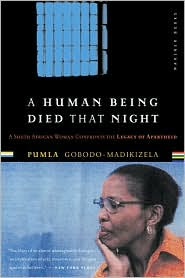 Vanora Bennett is the author of two works of nonfiction, Crying Wolf: The Return of War to Chechnya and The Taste of Dreams: An Obsession with Russia and Caviar, and the novels Portrait of an Unknown Woman, Figures in Silk, and The Queen's Lover.
Vanora Bennett is the author of two works of nonfiction, Crying Wolf: The Return of War to Chechnya and The Taste of Dreams: An Obsession with Russia and Caviar, and the novels Portrait of an Unknown Woman, Figures in Silk, and The Queen's Lover.She discussed five favorite historical novels with Erin Yardley at FiveBooks, including:
An Instance of the Fingerpost by Iain PearsRead about another book on Bennett's list.
This one is really complicated – maybe I just like them complicated. Pears is also a really intelligent man and has oscillated between writing fiction for entertainment and academics. He’s lived in Italy and he’s a professor and this book sort of speaks to all of those things. On the face of it, it’s about a murder in 17th-century Oxford, but quite amazing things are going on that are creepy yet fascinating. There were things I hadn’t thought about before like body-stealing to learn dissections and anatomy. There is a lot about this rudimentary science, well, rudimentary to us but very exciting and magical to them. The first part of the book is told by one character and you feel you’ve learned the story. You get to the next part and it’s one of the other characters telling the samestory but from his point of view and it’s really different. There are four characters who each tell it and each time you learn something new. Then you’re thinking it’s a clever game, but with the final story it suddenly becomes something different. I don’t want to give the story away but it’s a very moving and strange story with these religious overtones and it’s just amazing. It really blows you away.
As a reader you tend to trust your narrator, so how does having four affect the way you’re reading the story?
I think it is reinforcing the way that the boundaries were being shifted at the time and that knowledge was expanding. You’re looking at the cadaver from different points of view and then looking at the story from different points of view too. It all fits together very beautifully. Then there’s the shock of something else.
An Instance of the Fingerpost is one of Val McDermid's top 10 Oxford novels.
Learn more about the author and her work at Vanora Bennett's website.
The Page 69 Test: Figures in Silk.
The Page 69 Test: The Queen's Lover.
--Marshal Zeringue





























